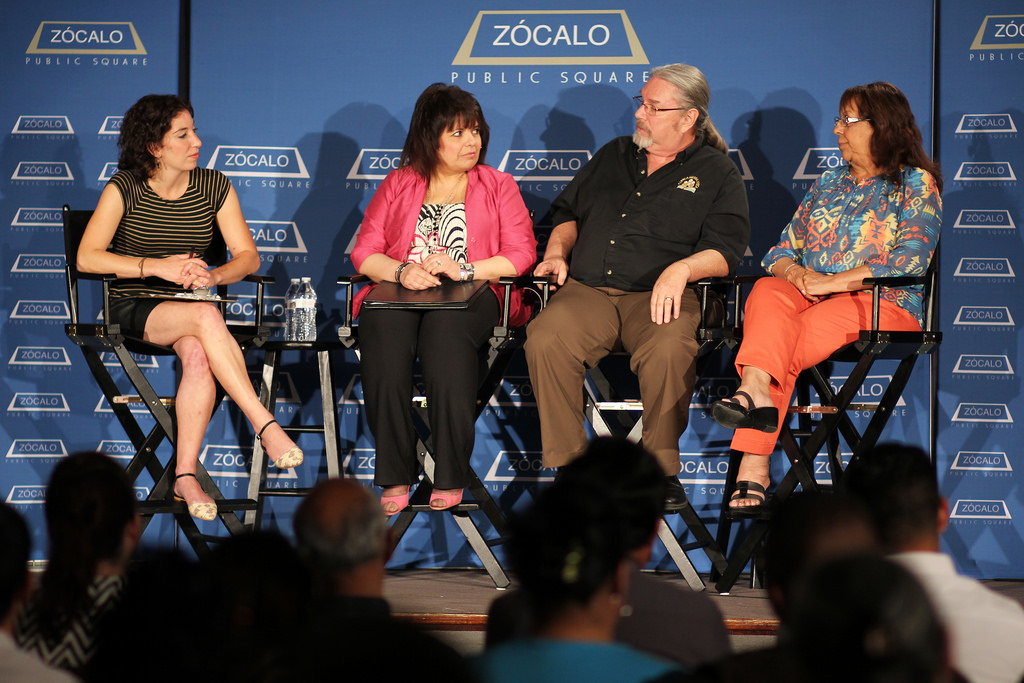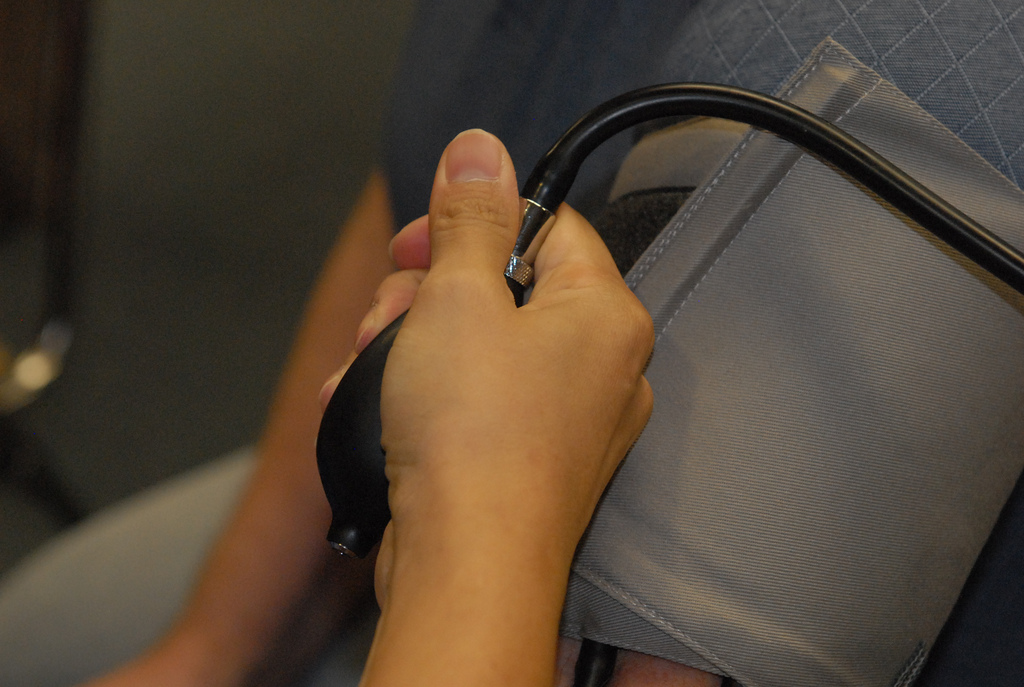
Fresno County stands to gain a lot from Obamacare: It has high rates of poverty, a large population of uninsured residents, and a problem with doctor shortages. But these are both opportunities and stumbling blocks in the implementation of the new healthcare law. Has the Affordable Care Act (ACA) failed in Fresno, and will it be able to succeed? In front of a full house at Frank’s Place at Warnors Center in downtown Fresno, KPCC Southern California Public Radio health reporter and moderator for the evening Rebecca Plevin opened a panel co-presented by The California Wellness Foundation by asking local healthcare experts this question.
Deborah Martinez, the deputy director of the Fresno County department of social services, described Obamacare in Fresno as “a work in progress”—one that has resulted in thousands of people getting health insurance for the first time.
Martinez said that the county now has 16,000 individuals who are newly eligible for Medi-Cal (California’s version of Medicaid), and about that many people waiting for their applications to be processed. On the one hand, that’s an incredible number of people; on the other hand, that leaves a significant backlog. Major technological issues and a shortage of trained staff hindered the county at first; the state system—which refers people’s applications to the county—was having difficulty communicating to the county whether or not people were approved. The technology kinks have been worked out, and there are now many more trained eligibility workers in Fresno County. But the work doesn’t stop at just enrolling people—now they must be incorporated into the county’s system.
How, Plevin asked Kevin Hamilton, the deputy chief of programs at Clinica Sierra Vista—the second-largest community health center in the country—does this look on the ground?
“It’s amazing to see people come to the doctor excited,” said Hamilton. But many of those people are in for a letdown: They’re enrolled, but they don’t yet have coverage.
Fresno County, said Plevin, could have created a low-income health program to serve as a “bridge to Medi-Cal”; it was one of a few counties that voted not to implement the program. Would this have helped with the backlog of people who have enrolled but are not yet covered?
Yes, said Hamilton. Look no further than Kern County, where Sierra Clinica Vista has clinics, and where many more people transitioned smoothly to Medi-Cal as of January 1. By contrast, Fresno County had huge crowds of people showing up to enroll in the first months of the year.
Margarita Rocha, the executive director of Clinica la Familia, a Fresno nonprofit that serves low-income families, added that the absence of a low-income health program has meant that many people suffering from serious illnesses are still waiting to receive services for which they are now eligible.
Rocha and Hamilton agreed that another big problem in the county is that the undocumented population remains underserved, which continues to put a strain on the community as a whole.
Plevin asked the panelists to discuss the region’s doctor shortages. If we gave everyone an insurance card, would there be enough physicians to see all these new patients?
Rocha said that people with illnesses like diabetes and cancer are happy to be enrolled, but now find themselves facing extremely long waits to see specialists.
But, said Hamilton, that can’t be blamed on Obamacare—it’s a problem in the Central Valley and in many parts of the country with struggling economies. In Fresno, “the primary care safety net is great,” he said. “The specialty safety net is in shreds.” The ACA may not have created this issue, but it has exacerbated it in some ways by neglecting to provide adequate reimbursement for specialists.
There have been bright spots in the implementation of the law. Martinez said that there has been “an unprecedented amount of communication” between the county and community organizations to enroll people. The county’s sheer size and diversity made it impossible for Fresno County to do the work on its own. Hamilton and Rocha concurred, noting that their organizations and the county haven’t always been partners but worked remarkably well toward a common goal when it came to ACA enrollment.
Communication went less smoothly when it came to people understanding their coverage options. Rocha said that as a result of inconsistent messaging, many people came to health fairs to learn if they should enroll in Obamacare, Covered California, or the Affordable Care Act—not realizing they all were the same thing. And Martinez said that many people who were already on Medi-Cal attempted to enroll and didn’t know they were already covered.
Hamilton said that there have been some big surprises. In the past, younger people visited the clinic to deal with specific problems like getting birth control or treating sexually transmitted diseases. Now, they come through the doors prepared to discuss sexual health—and instead get physicals, vaccinations, immunizations, and a conversation about their overall health.
In the question-and-answer session, audience members asked whether private physician groups that are not currently accepting ACA plans were likely to shift in the future and how Fresno can address doctor shortages.
Hamilton said that people who are covered are getting great care at community health centers even if private groups don’t take their insurance. And, people with private coverage still have many more options than those on Medi-Cal. The bottom line is that anyone who is covered won’t be bankrupted by an emergency trip to any hospital—and, after all, sitting in a clinic waiting room for four hours beats sitting in an emergency room any day of the week.
Hamilton added that the doctor shortage is going to be difficult to rectify: Specialists simply aren’t attracted to underserved areas like Fresno. But changing the reimbursement structure for Medi-Cal is what it would take for specialists to make enough money in Fresno. Adding a statewide revenue tax of some sort focused on healthcare and the social safety net could make that possible—but that’s a decision that’s in the hands of California voters.






Send A Letter To the Editors